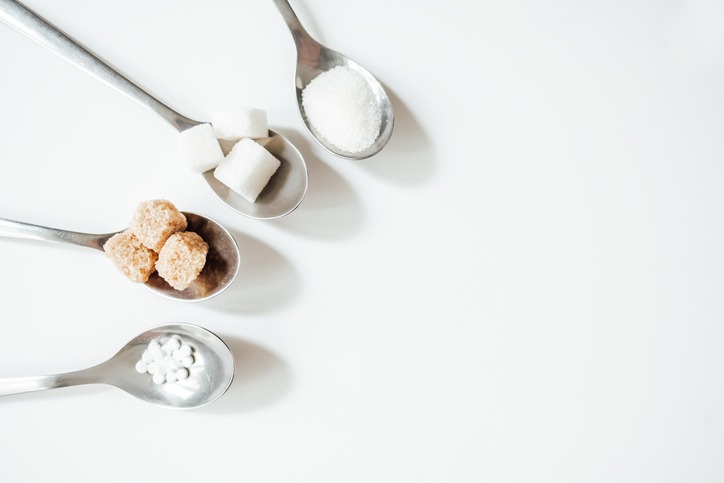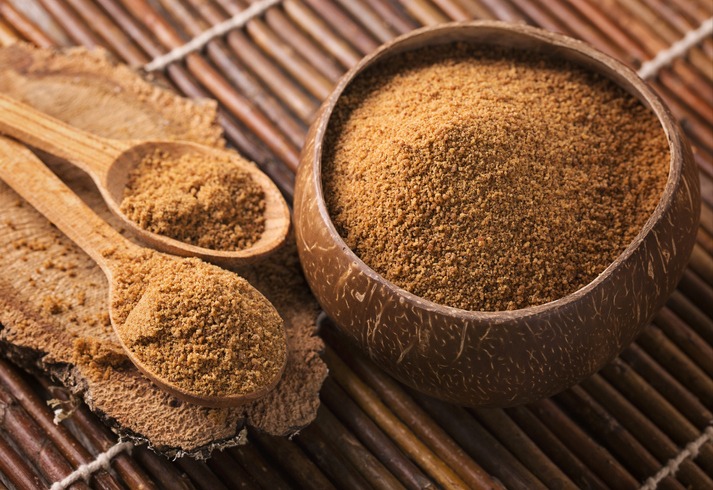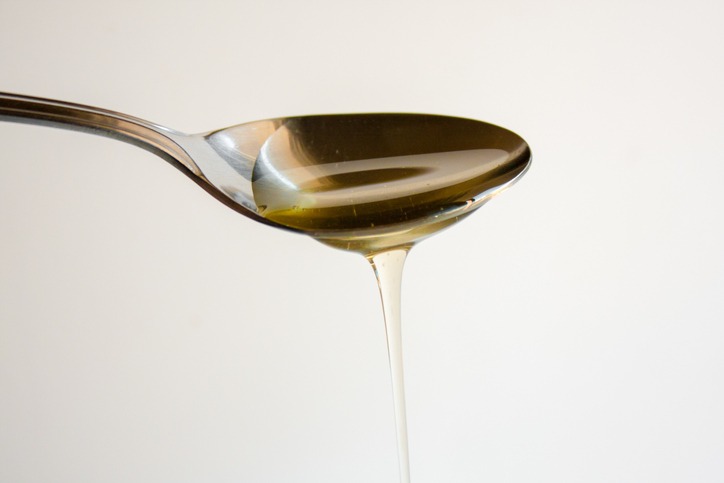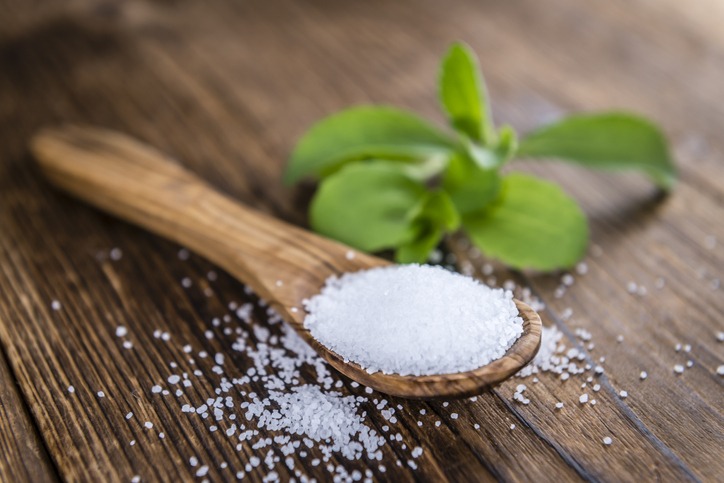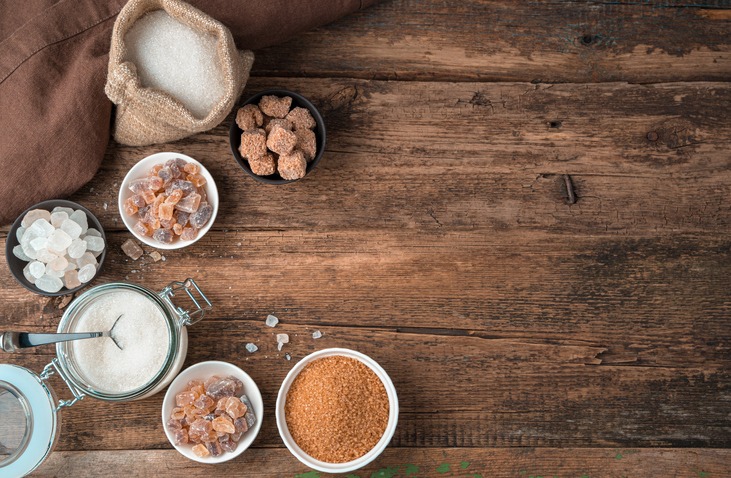In today’s day and age, we have so many options when it comes to food that it can be hard to pick what you want to eat. More often than not, you don’t even know what you want to eat. You can go to a health food store but that doesn’t reduce the number of choices. You can spend zillions of dollars at said health food store on “organic” and “natural” products only to come home and read an article 10 minutes later about how the product you just bought is a big gimmick and is just as unhealthy as the cheap version sold at regular grocery stores.
It makes my head spin.
One of the many areas of healthy food that confuse me is alternative sweeteners. We all know aspartame is bad, as is high fructose corn syrup and white sugar should be used sparingly, but what about all the rest?
In this article, I’m going to scratch the surface of this conundrum and talk about a few alternative sweeteners such as:
- Coconut palm sugar
- Agave Nectar
- Stevia
- Brown Rice Syrup
- Honey
Let’s take a deeper dive into all of these.
Coconut Palm Sugar
Coconut Palm sugar is made from the flower of the coconut palm tree. It is similar to brown sugar and works as a good substitute. Dr. Oz claims that it can prevent blood sugar crashes that cause hunger and leave you unsatisfied. Its supporters claim that its low-glycemic index makes it a great alternative to regular sugar. It has almost the same number of calories as regular table sugar but is claimed to be higher in micronutrients, perhaps because it is generally less processed. On the other hand, coconut palm sugar is not a traditional food and the current high demand for it may be endangering the coconut palm.
Bottom line: Is it healthy? No. Might it be a good alternative to regular white sugar? Yes.
Agave Nectar
Made from the blue agave plant, agave nectar is 25% sweeter than white sugar. Like coconut palm sugar, agave nectar has a low-glycemic index. However, we can tell from Food Renegade’s research on the subject that not only is agave nectar not a traditional food, it is also highly processed. This means that it contains a higher level of concentrated fructose than the evil high fructose syrup. She doesn’t use it.
Bottom line: Is it healthy? No. Might it be a good alternative to regular white sugar? Maybe.
Stevia
Stevia is a no-calorie sweetener extracted from the stevia herb and it is not metabolized by the body. You can buy it in many forms, most popularly as a liquid or granulated. Like agave nectar, it is highly concentrated and very sweet. The problem is that taking stevia from its plant-based form to the form that is most often used on our tables and in our recipes requires a lot of processing. To do this, the stevia plant is turned into the compound Rebaudioside (RebA) and this is highly processed. However, you can grow the plant and use the leaves in tea to sweeten or make your own extract of the leaves using alcohol. (Buy dried leaves in bulk here.)
Bottom line: Is it healthy? Probably not. Might it be a good alternative to regular white sugar? Yes – if you use the whole herb or make the extract yourself (or buy from a reputable source).
Brown Rice Syrup
Brown Rice Syrup is similar to maple and corn syrup but is half as sweet. So brown rice syrup can be a really good alternative for sugar when you want to bake some delicious sweet desserts. It is derived from rice (duh) and some people say it has a funny aftertaste. I couldn’t find a ton of negatives about brown rice syrup but I did find that most people said the taste can be a little funny and it is less sweet than other sweeteners so you still need to sweeten with something else. That might be enough to turn me off.
Bottom line: Is it healthy? No. Might it be a good alternative to regular white sugar? Probably not.
Honey
Does it get more natural? Probably not as long as you are buying the raw stuff. Honey and white sugar are very similar in the area of calorie-counting but honey does taste sweeter, so you often need to use a bit less.
Bottom line: Is healthy? If sourced properly, an argument could be made for yes. Might it be a good alternative to regular white sugar? In some applications yes, as long as it is raw and preferably locally sourced.
Does this help you? It has helped me *some.* At the end of the day, satisfying your sweet tooth with fresh fruit is best and any other sweetened food should be eaten as a treat and in small amounts. Did you (or I) really need to do all this research to determine this outcome? Probably not.
FAQ: Making Sense of Alternative Sweeteners
1. Why are Alternative Sweeteners bad for you?
Alternative sweeteners are not considered the healthiest alternative to sugar because of the low amounts of food energy they possess. They do have health benefits for those who cannot consume sugar, however, they also have many side effects that should be taken into account. These side effects include brain tumors, weight gain, and bladder cancer. Hence they should be used with extreme caution.
2. Why do we use alternative sweeteners?
Alternative sweeteners are mainly marketed to people who cannot consume sugar due to various diseases such as diabetes. Many people also use them as a way to control the caloric value of their food. Alternative sweeteners have virtually no calories yet they add-in that sweetness that most people crave. Hence, they seem like an attractive option to those who are looking to shed a few pounds. Alternative sweeteners are also used in way less quantity as compared to sugar. These features add in to the attraction that many feel towards alternative sweeteners.
3. What are the safest sweeteners?
It is no secret that sweeteners are not the best thing for your health. They can be pretty useful if you have a certain disease however, they come with a host of side effects that are best avoided. This is not to say that all alternative sweeteners are harmful. Some of these come from nature itself and are thus safe to consume. The best and safest sweeteners include xylitol, stevia leaf extracts, neotame, monk fruit extract, and honey.
4. Which Alternative Sweeteners are the worst?
Among the many alternative sweeteners, there are a few that are best avoided. The reason for their avoidance is the fact that they are simply not up to the mark with their nutritional content. Furthermore, they are made using chemicals that are best not consumed on the regular. These alternative sweeteners are aspartame, Sucralose, and Saccharin. Hence, whenever you check the label for alternative sweeteners, make sure that none of these are on there.
Conclusion:
Alternative sweeteners were made with a purpose. They were made to assist those who are sensitive to sugar. However, in recent times, people have taken the zero-calorie nature of such sweeteners to be a huge pro and have started consuming them in hopes that the reduction in calories consumed would allow them to lose weight quickly. Some even feel as if sugars are not healthy and use alternative sweeteners. They hope that they will be a healthier alternative than consuming sugar.
The trust that people have placed in Alternative sweeteners is mostly misplaced. Other than the few natural sweeteners available, most make use of several chemicals that can be very harmful to our body’s well-being. Hence, use these sweeteners with extra caution!

